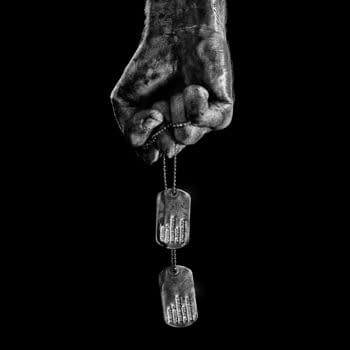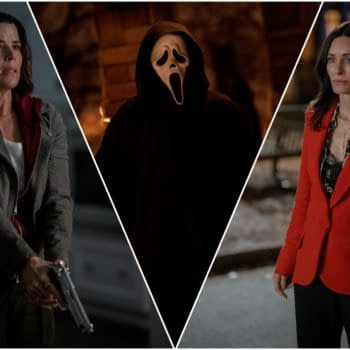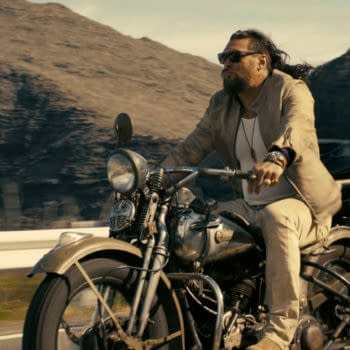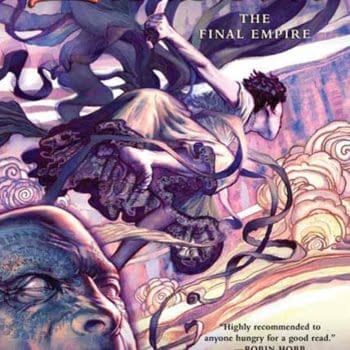Posted in: Movies, Recent Updates, Video Games | Tagged: entertainment, inFamous: Second Son, next gen gaming, sucker punch, video games
inFamous: Second Son – Being 'Hip' Might Be A Good Thing
By Sage Ashford
One of the largest problems many gamers have as they get older is actually finding the time to engage in their hobby. As we age, our responsibilities grow in number and gradually become more time-consuming: homework becomes more demanding in college, and then after we graduate, work, spouses and children drain ever more of our time until the even the idea of gaming every night becomes a distant memory. Life, rather than waning interest, becomes the real reason people play fewer games. Arguably, this is the reason portable gaming is doing so well. It's ability to allow players to game in bite-sized bursts means it's tailor-made for the busy schedules of moms, dads, or just the average adult swamped with responsibilities.
In my case though, it's been less a case of growing responsibilities as it has been my being completely out of sync with the gaming industry. As a child, I spent countless weekends and nights after school enthralled by the Playstation, Nintendo 64, Dreamcast and more, and there are still memory cards filled with saves that have dozens of hours of work on them. But on the way to picking up Playstation 3, something strange happened. Gaming underwent a massive shift as publishers tried new, different ways to profit off their multi-million dollar creations, and those new ways had a direct effect on my interest in gaming. Suddenly the shelves were filled with games that looked startlingly similar–dark and "edgy", full of greys and browns, and either another first-person military shooter or another post-apocalyptic dystopian story. Despite having greater financial agency as an adult, I found myself buying games in the same numbers I did as a child. A hobby I'd once devoted so much time to was being slowly stolen from me–not by a lack of interest, or even from the growing responsibilities of life–but rather by the industry itself.
But with the new generation often comes new changes, and so I decided to give "next-gen gaming" a chance starting with Sony's first major release of the year, inFamous: Second Son. And it's a good thing I did, because it's the most fun I've had playing a game in months.
The latest in Sucker Punch's inFamous series, inFamous: Second Son changes out its original protagonist, Cole McGrath, for newbie Delsin Rowe–he's younger, more fashionable, and I'm guessing he's also meant to be more "hip". I'd say this was a terrible idea except for me it worked. Delsin is a hilarious, likable guy. Their change in protagonist, along with a shift from the more drab looking cities in inFamous 1 and 2 to the far more beautiful, bright, and colorful city of Seattle successfully swung me over from completely ignoring the series to being intrigued enough to buy this game day one.
Not much has been said about the story of Second Son, and I won't ruin the work Sucker Punch put in to keep the mystery in the game by giving out a ton of specifics. But it's a well done, well-acted story that follows Delsin and his brother Reggie bringing down the out-of-control Conduit control force, the D.U.P., after they've put the city of Seattle under martial law. It's definitely nothing revolutionary, but it does a great job in keeping you emotionally invested as you play. And in any case, the real meat of Second Son is found exactly where it should be: the gameplay.
inFamous: Second Son really makes you feel like a superhero (or villain) in a way that most games based on traditional superheroes fail to do. You can hover, glide up buildings, and even fly over the city of Seattle, then choose to drop out of the skies with the impact of lightning striking the ground. Innocent bystanders will flee from you in abject terror, while enemies will be knocked off balance long enough for you to hit them with powerful, punishing techniques like giant swords and blasts of sulfur or neon energy. You can obliterate the structures the D.U.P. have erected around the city with powerful missiles, to say nothing of the absolutely jaw-dropping "special techniques" each power has that takes perfect advantage of the PS4's horsepower.
When I initially heard about the game's power swapping technique, I had some worry that they'd mostly just be copy-paste versions that looked different but were largely the same. Fortunately, I was almost entirely off-base: while the powers have some similarities in their purpose, each one has it's specialties and drawbacks, and you'll find yourself swapping between them often, sometimes even mid-battle (or especially mid-battle). Speaking of which, the D.U.P. are no pushovers. While you're certainly more powerful than they are, they possess a far wider array of tricks and vastly superior numbers–if you're cocky and try to rush in, you'll be killed. On that note, worth mentioning is that there's no "health bar" in this game. If you take too much damage the screen will simply start to turn grey, and if you don't get away in time to allow your quick healing to recover, you'll get a game over screen.
Aside from the powers, the game offers a variety of different missions for you to go on, but I'll admit that not all of them are equally fun. Certainly, the seemingly randomly generated drug busts and D.U.P. trucks that will attack you if you use powers near them are enjoyable, but then there are things like the secret agent hunts. These will force you to look around at what are unfortunately still not that detailed models of the denizens of Seattle to find an agent who will bolt as soon as you see him, forcing you to catch up and shoot them down. This is kind of a pain to do and it never gets better. But to be honest that's more the exception than the rule, as the other side missions–tracking down secret cameras, shutting down D.U.P. bases, doing cool stenciled graffiti work around the city and more, are all vastly more interesting.
The last thing I want to tackle is the game's much-discussed morality system. The inFamous series is often derided for its binary choices, and until I played one of them it always sounded like something that needed to be improved upon. But having played through nearly all of the game, I can say that their good/evil choices are meant to be as blatant as they are. It doesn't bill itself as offering you a deep, complex morality system. The game is offering you a very clear choice of being good or evil, superhero or super villain, Superman or Lex Luthor. The story itself plays out differently depending on your major story choices, but the game grants you tons of tiny decisions throughout the game to role play this out further: you'll find downed citizens who you can either save or kill, certain enemies will surrender and you may choose to either subdue or execute them, even the aforementioned side missions will grant you either good or evil "karma" that will gradually level up over the course of the game.
These changes are reflected in the way the story is told, but also directly affect your game: certain powers are granted or locked off depending on if you're good or evil which changes the way you fight, but also the citizens of Seattle will react differently as well. Playing as a "Hero" (the only way I know how to play), when you walk around the city NPCs will cheer you on, yelling out things such as "We're all very proud of you!" and "You inspire me!" Once I even got a "I want you to meet my parents!". A tad strange, but it all works toward making you actually feel like a hero, though the denizens will scatter and beg you not to kill them if you do anything like shoot out smoke or neon blasts too close them.
My only complaint is that I think they could have taken this even further, and I hope they do in a future game. While the first two were tied down with their urban dystopian fantasy stories, Second Son had the potential to offer much more variety in terms of being good or evil. Instead of doing simple drug busts I would have liked it if as a villain you had the opportunity to become a drug lord, or as a hero you worked with the police to track down the leader of the drug dealers. And it would have been neat to team up with a group of Conduits specifically setting out to help people as this world's "Justice League", or work with rogue Conduits to spread terror.
Still, this game has been fantastic. It's reminded me of when I was a kid again, as when I played it the first weekend it was released, I easily sunk nearly 15 hours into it without ever feeling like it was a chore or like I was doing it just to keep my "gamer cred". It's not a very long game, but I suspect that's because it's a launch window title that Sucker Punch had to get out by a certain time, so we get a title that's very polished but perhaps not as expansive as it might have been if it came out this fall. But it works at its current size, because with the current variety of side missions, there's very little chance of the game wearing out its welcome. At the same time, over the next six weeks Sucker Punch will be rolling out additional, free content in the form of Paper Trail, with 19 new missions to be added over that time span. So if you like meaty games, don't write this off yet.
Overall, if this game caught your eye at all from an article or the game play, it's a title I would definitely recommend. It does an excellent job as a superhero (or super-villain) title, with the various powers offering tantalizing glimpses at what could be if DC and Marvel ever took the time to craft well-made games about their characters. (Neon in particular; they said the super-speed of the Flash couldn't be done, but this game does it, and does so consummately.) And it makes me excited for the latter part of this year and 2015. If a title this close to launch is one as polished and fun as this, I can only imagine what awaits us in the future.
Sage Ashford is a college kid with far more hobbies than he has free time. You can find him on Twitter @SageShinigami, but also at his own blog Jumping in Headfirst.





















